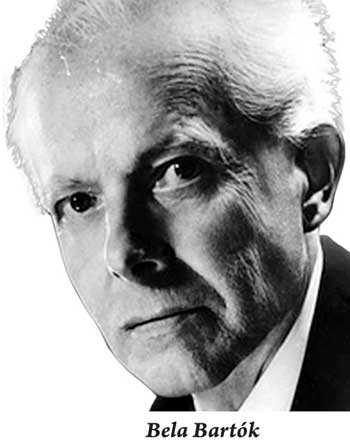Wednesday Feb 25, 2026
Wednesday Feb 25, 2026
Saturday, 24 August 2019 00:10 - - {{hitsCtrl.values.hits}}
 The acclaimed series of classical music concerts at the Goethe-Institute continues with the Chamber Music Society of Colombo (CMSC) presenting Bela Bartók’s 44 Violin Duets on 25 August at 7 p.m. The concert will be held at the Goethe-Institut Hall.
The acclaimed series of classical music concerts at the Goethe-Institute continues with the Chamber Music Society of Colombo (CMSC) presenting Bela Bartók’s 44 Violin Duets on 25 August at 7 p.m. The concert will be held at the Goethe-Institut Hall.
Violin duos and duets are an essential part of the chamber music repertory. Is there a difference between a violin duo and a violin duet? Yes, the former is for two solo violins exclusively, and the latter can have supplementary accompaniment, usually a basso-continuo or an orchestra.
There are several different types of duos and duets in classical music; you can have violin-viola, violin-cello, viola-cello, and many other variations with different instrument families. Even with all of the available varieties, instrumental duos are rather rare: they are underplayed, under-recorded, and quite underappreciated.
The solo violin-violin duo repertory is relatively small. That said, this form rose in popularity in the twentieth century as composers began to compose chamber music for much smaller ensembles. A reason for this is that with two significant world wars, many musicians were either fighting or were casualties of war.Since they were composed in the 20th Century, many of the violin duos by Honegger, Bartók, and Prokofiev are more harmonically and structurally experimental than the standard classical fare. Moderating and performing will be the Artistic Director of the CMSC, Lakshman Joseph-de Saram and Principals of the CMSC, Ursula Nelius, violin. Haasinee Andree, violin and Sulara Nanayakara, violin. The duets will also feature select students of Ursula Nelius and Haasinee Andree.
Interspersing the Bartók will be the neo-Baroque Violin and Cello duets by Russian 20th Century composer Reinhold Glière, performed by Lakshman Joseph-de Saram and Rochana Ramanayaka, cello. Tickets available at the Goethe-Institut from 5 August; Rs. 1,000, first come, first served.